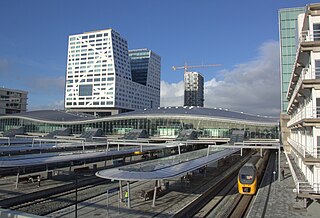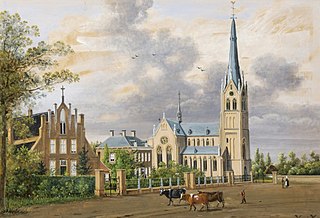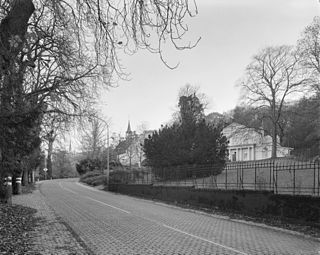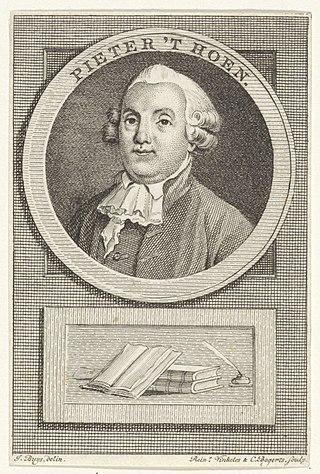Related Research Articles

Tuyll is the name of a noble Dutch family, with familial and historical links to England, whose full name is Van Tuyll van Serooskerken. Several knights, members of various courts, literary figures, generals, ambassadors, statesmen and explorers carried the family name.

The Dutch Waterline was a series of water-based defences conceived by Maurice of Nassau in the early 17th century, and realised by his half brother Frederick Henry. Combined with natural bodies of water, the Waterline could be used to transform Holland, the westernmost region of the Netherlands and adjacent to the North Sea, almost into an island. In the 19th century, the Line was extended to include Utrecht.

Leidsche Rijn is a new construction site and neighborhood in Utrecht, the capital of the Dutch province of Utrecht. The area is located west of the Amsterdam–Rhine Canal and its name is derived from the Leidse Rijn canal, which runs through it. At the time of its inception in the 1990s and in the decades that followed, Leidsche Rijn was the largest Vinex location in the Netherlands. Most of this location was on the territory of the former municipality of Vleuten-De Meern, located west of the city of Utrecht. A smaller part of this location, namely the area of Hoge and Lage Weide, was located in the municipality of Utrecht.

Jaarsveld is a village in the Dutch province of Utrecht. It is a part of the municipality of Lopik, and lies about 7 km southwest of IJsselstein.

Polsbroek is a village in the Dutch province of Utrecht. It is a part of the municipality of Lopik, and lies about 10 km southeast of Gouda.

Oud-Wulven is a hamlet in the Dutch province of Utrecht. It is located just north of the village of Houten, and is part of that municipality.

Utrecht Centraal, officially Station Utrecht Centraal, is the transit hub that integrates three bicycle parkings, two bus stations, two tram stops and the central railway station for Utrecht, Netherlands. It is the biggest train station in the Netherlands.

Dinther is a village in the Dutch province of North Brabant. It is located in the municipality of Bernheze.

A heerlijkheid was a landed estate that served as the lowest administrative and judicial unit in rural areas in the Dutch-speaking Low Countries before 1800. It originated as a unit of lordship under the feudal system during the Middle Ages. The English equivalents are manor, seigniory and lordship. The German equivalent is Herrschaft. The heerlijkheid system was the Dutch version of manorialism that prevailed in the Low Countries and was the precursor to the modern municipality system in the Netherlands and Flemish Belgium.

Rijksstraatweg or simply Straatweg was the term for paved roads of interregional significance in the Netherlands in the 19th and early 20th centuries. These roads were built by the national government, and formed the country's first centrally planned highway network. They received route numbers, eventually resulting in a nationwide network of 82 highways. It formed the basis for today's system of nationally controlled roads, the Netherlands' main highway grid.

Pieter 't Hoen was a Dutch journalist, poet, and politician who played an important role during the Patriottentijd as the editor of De Post van den Neder-Rhijn.
Marianne Burgman was a Dutch politician. A member of the People's Party for Freedom and Democracy, she served as Mayor of Maarn, Bunnik, and De Ronde Venen.
This is a list of cities, towns and village flags in the Netherlands. The flags are listed per province.

Ter Hooge Castle is an 18th-century manor in Middelburg. It includes parts of a medieval castle.
References
- W.A.G. Perks, Geschiedenis van de gemeentegrenzen in de provincie Utrecht van 1795 tot 1940 ("History of the municipal boundaries in the province Utrecht from 1795 to 1940"), Provinciale Almanak, 1962